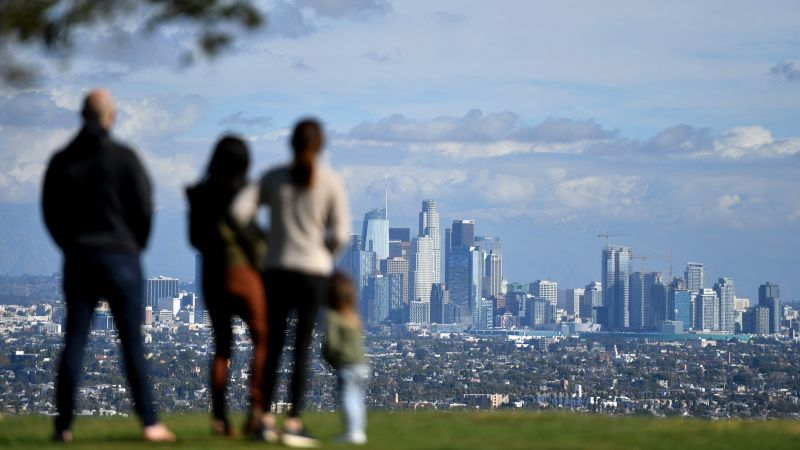Imran Khan’s fall: a story of political hope turned to despair
Islamabad, Pakistan – Imran Khan, the Pakistan cricket star who became prime minister, ascended to power in 2018 with great fanfare and promises of making his country a land of opportunity.
Khan’s celebrity status and crusade against corruption helped him win support across the country’s political divide.
But nearly four years on, Khan has been voted out of office and his charisma has faded.
Though some supporters still believe Khan will make a comeback and laud the successes of his tenure, the legacy of his premiership tells a different story – a shattered economy and a polarised society.
“The economy will remain a serious challenge for the new government,” political analyst Hasan Askari Rizvi told Al Jazeera.
Pakistan’s economic challenges are so deep-rooted there will be no quick fix – contrary to what many might wish, Askari Rizvi said.
He pointed to two additional challenges the new government would need to keep in focus: keeping their coalition intact and dealing with Khan in opposition.
When Khan came to power in 2018, he was riding on a wave that promised “change”.
But his inflexible attitude towards the opposition created a deadlock that topped the list of his failures of governance, Askari Rizvi said, adding that Khan appeared to lack an understating of how parliamentary democracy works.
Khan is still popular among Pakistan’s youth, and if he manages to sell supporters on his “anti-American sentiment”, he could bounce back with even more popularity and power, he added.
The cricket star’s rise to power and spectacular fall was “a journey of hope turned into despair”, said Akbar S Babar, a former founding member of Khan’s Pakistan Tehreek-e-Insaf (PTI) party.
“The PTI was hijacked by its own captain, a phenomenon unheard of in politics. He chose the path of power at any cost. Today, he is groping in the dark to save himself and the party,” Babar told Al Jazeera.
Regime Change
In his first public statement after losing the crucial no-confidence vote that saw him removed from office in the early hours of Sunday morning, Khan spoke again about a “foreign conspiracy of regime change”.
“Pakistan became an independent state in 1947; but the freedom struggle begins again today against a foreign conspiracy of regime change,” Khan tweeted on Sunday.
“It is always the people of the country who defend their sovereignty & democracy.”
Khan’s conspiracy message has not convinced everyone.
Taxi driver Kashan Qadeer, 26, said he was unmoved by the allegations of foreign meddling in Pakistan’s politics.
“If the opposition has been helped by foreign forces, then they must have done the same when Khan came to power,” Qadeer told Al Jazeera.
A government needs to cater to people’s needs and incentivise the poor, whether it is Khan or anyone else in power, he said.
Khan’s PTI government was indifferent to the issues faced by the people, the taxi driver added, and had focused more on playing a political victim than leading the drive against corruption.
Rising petroleum prices, dwindling incomes, and spiralling food costs were the main issues Qadeer wanted the new government to tackle first.
“I am happy over what happened to Khan’s government,” said Muhammad Aqeeb, a 30-year-old grocery store salesman in Aabpara, Islamabad’s oldest market.
“My salary is Rs 30,000 ($160) but life has never been so difficult as it was during the last four years,” Aqeeb told Al Jazeera.
Business has been reduced by at least 30 percent during Khan’s premiership, he said, because people do not have purchasing power.
During the previous Pakistan Muslim League-Nawaz (PML-N) government, prices did not change exponentially and Aqeeb hoped that those days would return again.
“What matters to us is food on the table, and not the conspiracies,” said retired soldier Zahoor Ahmad, 60.
Ahmad works as a security guard in an upmarket area in the capital and two of his three sons are unemployed.
“I’m a heart patient and cannot afford to be without a job,” he added.
Khan still has supporters who believe he had plans for a future Pakistan.
Gul Sher, a 27-year-old IT engineer, said he was upset by the removal of Khan’s government.
The two main political parties, the PML-N and Pakistan Peoples Party (PPP), had been in power for decades, and they had done nothing to uplift the people or tackle the country’s multifaceted crises, Sher said.
Khan’s struggle was for future generations in Pakistan, unlike opposition leaders who had joined hands to safeguard their old interests, he told Al Jazeera.
“The youth is well aware of the fact that inflation is a global phenomenon, and Khan cannot be blamed for that.”




